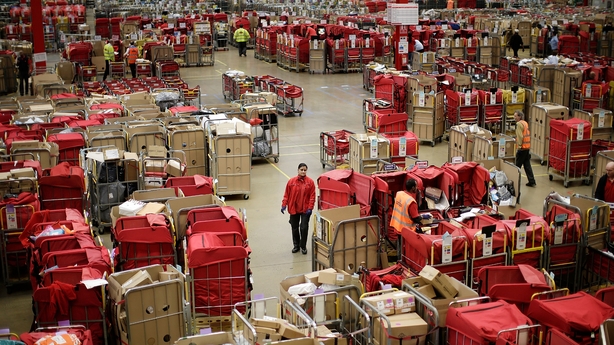Czech billionaire Daniel Kretinsky is working on improving an offer for the owner of Britain's Royal Mail, according to a source with knowledge of the plans today.
This comes after the billionaire's investment vehicle said it had made a non-binding bid this month which was rejected.
Reuters reported earlier that Kretinsky was exploring a possible bid for London-listed International Distributions Services (IDS), which has seen its market value fall to £2.1 billion over recent years.
IDS stock was up 15% in early afternoon trade.
Kretinsky made the cash offer on April 9 and was seeking the board's recommendation but IDS rejected it, his EP Corporate Group said in a statement.
"While EP Group's proposal was rejected by the Board of IDS, it looks forward to continuing to engage constructively with the Board as EP Group considers all its options."
Kretinsky is the largest shareholder in IDS with a 27% stake. IDS did not respond to a request for comment.
The UK business ministry also declined to comment.
"Weak financial performance, poor service delivery and a slow transformation, in the face of a market going through structural change, have put the business under unsustainable pressure," EP Group said in its statement.
"With the increasing competition from multinational companies in the UK postal market, private investment in Royal Mail becomes crucial," the statement said.
It added that Royal Mail would benefit "from being able to take a longer-term view" and that it is prepared to support a transformation of the business.
Under UK takeover rules it has until May 15 to make a firm offer for the company.
The Communication Workers Union (CWU) said on messaging platform X, that the bid was a significant moment.
"The truth is handing over the ownership of one of the UK's most prestigious institutions to a foreign equity investor cannot be right. But neither is the current model or direction of the company," the union said.
Shares of IDS rose 24% to 265p after Reuters and the FT reported the potential bid.

The shares have fallen by two-thirds from their most recent peak of 571p in June 2021 to open at 213p today before the deal talk emerged.
EP is a 100% shareholder in VESA Equity investment which owns Kretinsky's IDS stake.
He founded VESA in 2018 with business partner Patrik Tkac which also has a stake in J Sainsbury and Foot Locker, according to VESA's website.
IDS comprises two businesses, including international parcels network General Logistics Systems (GLS) based in Amsterdam, and the Royal Mail business in the UK.
Royal Mail has faced hurdles over the last couple of years with strikes by postal workers, a cyber security incident, a fine from regulator Ofcom for missed delivery targets as well as losing a 360-year monopoly to deliver parcels from post office branches.
Any bid by Kretinsky for one of the world's oldest postal firms would follow a buying spree in Europe, including of indebted French supermarket group Casino last year, as well as attempts to buy half of Thyssenkrupp's steel business and Atos' loss-making IT services unit.
The UK has seen an uptick in approaches for its London-listed companies, which have struggled with low valuations.
A deal could trigger an intervention from the British government under the terms of the National Security and Investment Act, which gives ministers a greater say over deals involving critical infrastructure.
The Department for Business, Energy and Industrial Strategy (BEIS) in 2022 reviewed VESA's plans to increase its about 22% stake in the company at the time to more than 25%.
IDS said revenues grew by 3.8% to £9.45 billion for the nine months ending in 2023, according its quarterly update in January.
It expects to make an operating profit in the second half of this year that would offset the £169m loss in the first half.

